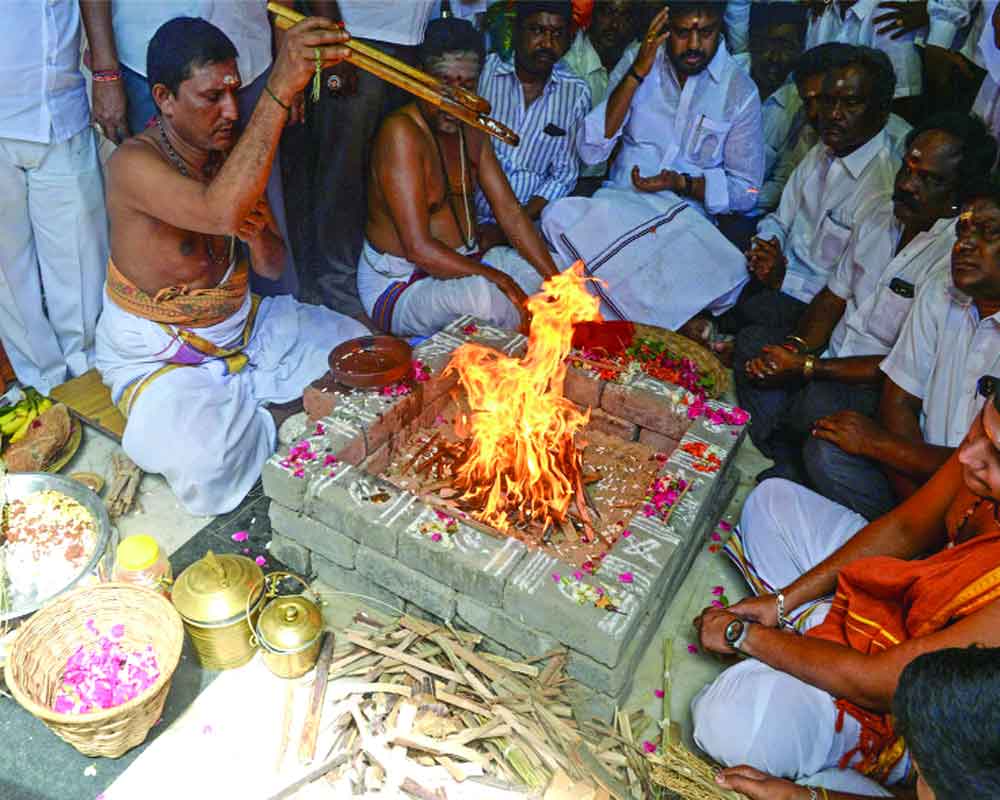Entry restrictions on non-Hindus in Tamil Nadu temples raise questions about religion, rights
Temple entry restrictions have often sparked debates, particularly in Tamil Nadu, where the Madras High Court has now barred non-Hindus from entering the sanctum areas. The court has directed Tamil Nadu's Hindu Religious and Charitable Endowments (HR&CE) Department to install signboards, proclaiming "non-Hindus are not allowed inside the temple beyond the kodimaram (flagpole)", in all Hindu temples in the State. Temples are not tourist/picnic spots and Hindus have a fundamental right to practice their religion, the judgment stressed. The decision has raised concerns regarding its constitutional validity and potential social repercussions. The practice of restricting entry into certain sections of temples based on religious beliefs has a long history in India. Traditionally, temples have been considered sacred spaces where rituals are performed according to the tenets of Hindu religion. However, over the years, societal norms have evolved and discussions around inclusivity and equal rights have gained prominence. The Constitution guarantees fundamental rights to all citizens, including the right to freedom of religion and the right to equality. The key question here is whether temple entry restrictions infringe upon the right to equality. Courts have often emphasised that the right to manage religious affairs is not absolute and must be exercised in conformity with other fundamental rights. The imposition of entry restrictions has significant social implications: It can perpetuate social divisions and reinforce notions of exclusivity, potentially increasing communal tension.
Moreover, such restrictions may adversely affect the tourism industry since India attracts a large number of international and domestic tourists interested in exploring its rich religious and cultural heritage. Exclusionary practices could deter potential visitors and harm the nation's overall image. India has always had very diverse views on everything under the sun, and it is not easy to reconcile all viewpoints. We have seen how ugly the spat can be, as was the case with the Sabarimala controversy. It is always good that the courts are kept out of such issues. Many ASI monuments are places of worship as well and, if this logic were applied to all, it would prohibit all foreigners from entering those. Balancing the right of religious denominations to manage their affairs with the constitutional guarantees of equality and freedom of religion requires a nuanced approach. The courts play a crucial role in interpreting these constitutional provisions and ensuring that these are harmonised to promote inclusivity without unduly interfering with religious practices. Even this judgment is likely to be challenged in the Supreme Court. Dialogue and engagement among various stakeholders — including religious authorities, legal experts and civil society — are essential to finding a middle ground that respects both the religious sentiments and constitutional principles. This could involve revisiting and reforming traditional practices to align them with modern societal values.


























